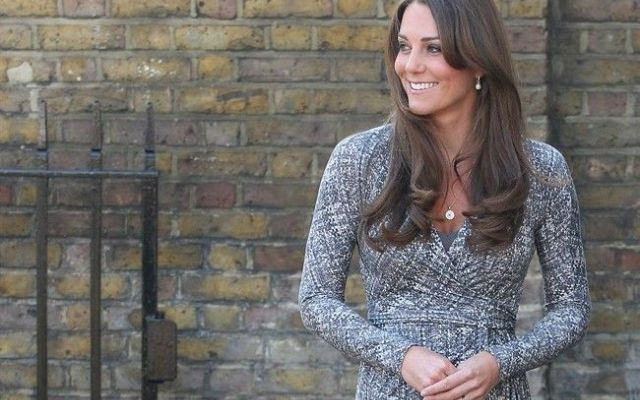My Amijaan, my very Punjabi maternal grandmother (may God grant mercy upon her), taught me that in the immediate aftermath of any tragedy, grieve as is.
Grieve the way it comes. Don’t question it. Let it out. Be dramatic. Ask the really simple questions that you can’t ask normally – the ones that would make you feel stupid or unsophisticated otherwise. Be childish in your grief. Cry when you need to. Don’t worry that what happened to the neighbors might be worse. Not yet, not now.
Most of all, she taught me to not judge anyone’s grieving, our own or anyone else’s.
***
Psychologists tell us that collective grief takes on many of the same tones and pathways of the individual grieving process. For instance, in both forms of grieving, grieving rituals matter and help people greatly. These rituals, formal and informal, help us both as individuals and as large groups of people process and move through trauma. They also provide a mechanism through which we can, as my Amijaan would say (in Punjabi), just sit with it.
Consequently, jumping to racist or xenophobic conclusions about entire groups of people as a form of consolation is not a healthy way to grieve. In fact, it’s the very opposite of taking the time to let ourselves absorb how the grief feels. With the hindsight of 14 years, I don’t need to tell anyone that a national and premature preoccupation with blame in the immediate aftermath of 9/11 wasn’t necessarily what our country needed in the hours after that unimaginable tragedy of global consequence.
Along the same vein of premature responses, I’ve seen many of my friends respond to the Paris attacks immediately with questions about why we don’t feel the same way about any number of other recently occurring violent global tragedies. These are important questions – ones that we as increasingly global societies need to answer. However, pushing recently traumatized people, ourselves included, into making armchair sociopolitical analyses and comparisons with other global tragedies (you know the ones that neither you or I posted about yesterday either) is not actually heroic or even helpful in these moments. Instead, it makes people feel guilty for processing their grief immediately in the moments that they have just received it.
People can’t receive grief and process it in the same moments. Our brains aren’t cognitively capable of doing that. We all have different sets of information that inform how we grieve and what we do and don’t feel. You have to receive grief before you work through it. Despite what we would like to think about our better natures, rationality isn’t always an automatic state. Making sense of things requires giving our brains the space that they need.
The uncomfortable truth is that grief – when it hits – supersedes all of our other complex identities. It cognitively reduces us to our most biological selves. Consequently, when some people push politically charged national responses in the name of racially laced nationalism or patriotism, and others yet push an opposite response that suggests we need to constantly relativize any and all grief in the name of social justice and geopolitical ‘Oppression Olympics’, what is actually happening is that we’re fighting our biology, or in other words, what it is that makes us each human.
Leaving aside what it is that makes us pay attention to a particular instance of violence versus another for a later conversation, whenever tragedy comes close enough for us to witness, our humanity beckons us to receive it first. It requires us to both receive and give empathy. Tweeting xenophobic social and political charges and slogans, or on the other hand, imposing guilt for not naming all the conflicts of the world in a Facebook post isn’t quite extending empathy to the person and people before you who are in a state of grief.
Yes, there are disproportionate responses to our collective grief. Yes, the lives of people of color and formerly colonized lands feels so much less costly. Yet, for some time everything stands on it’s own. Every story of suffering is particular. When you receive the news of a friend’s grandfather passing, you don’t tell your friend, yes but I lost my father last year. You simply say, “I’m sorry.” Later, you might come back to your friend and say, “We’ve both suffered a lot this past year. How can we help each other now?”
Similarly, when large groups of people have actually absorbed the trauma of witnessing large-scale tragedy, we too can then explore the connections between global suffering, geopolitics, and the complexities of historical narratives. Once we’ve processed what has happened as a society, we are then ready to tease out effective and healthy responses – both as individuals and as large social groups. We can ask the necessary and difficult questions that we need to. The how’s, the whys, the ‘but, have you thought about this?’ questions work best when we work with human behavior – not against it.
In the end, perhaps each of our grandmothers knew something about life that we’re still learning: when something happens, let people grieve, bring them dinner, just sit with them. Then, when they’re ready, when they’ve named their grief, when they’ve had time to sit with it, push them to heal by asking the difficult and sometimes uncomfortable questions. Grieving is a process for individuals and societies.
[separator type=”thin”]
As the Executive Director of Arete at the University of Chicago, Samar Kaukab works to launch complex initiatives that enhance UChicago’s research enterprise. She has three children and two step-children.
(Photo source: mirror.co.uk)





